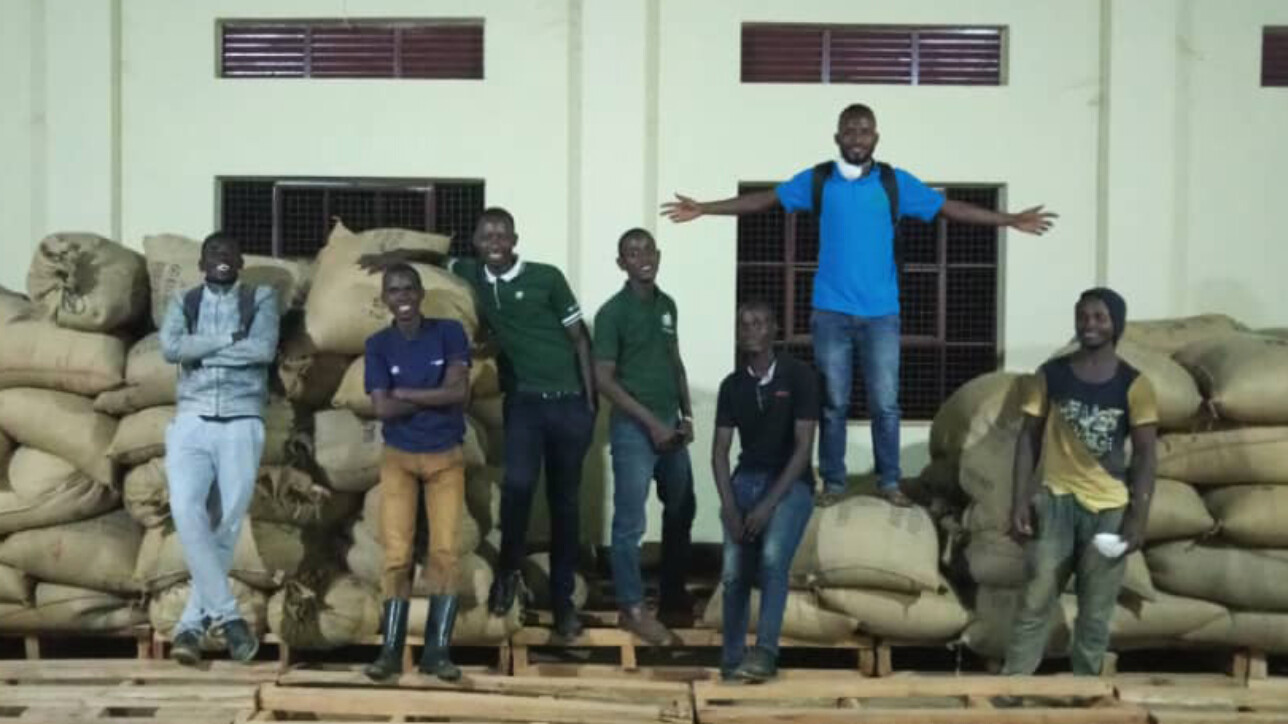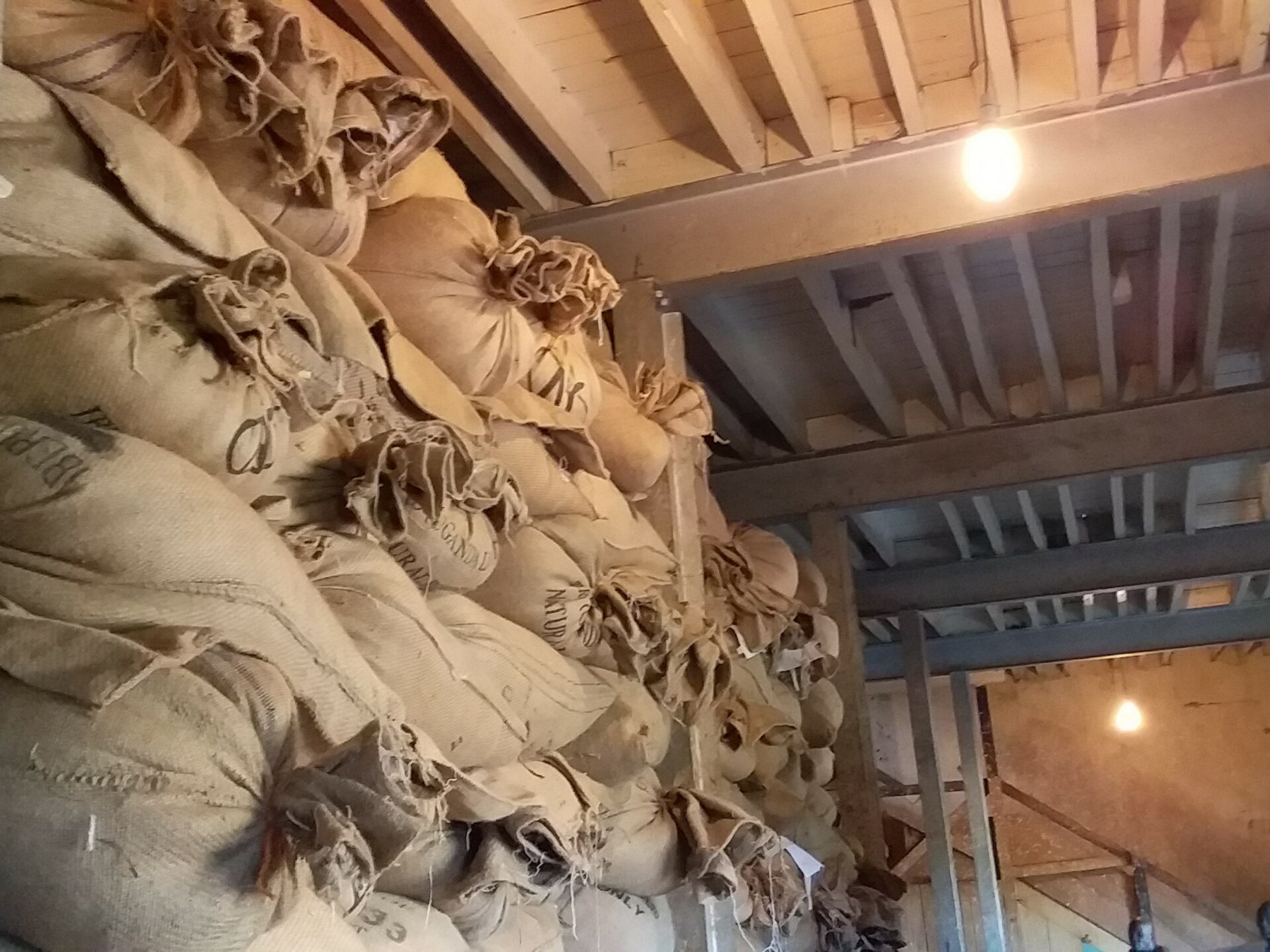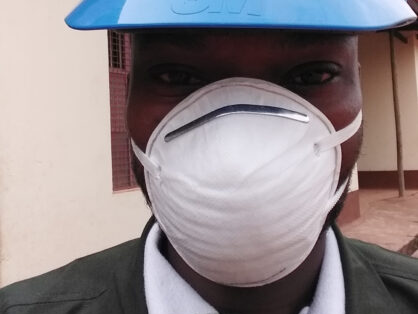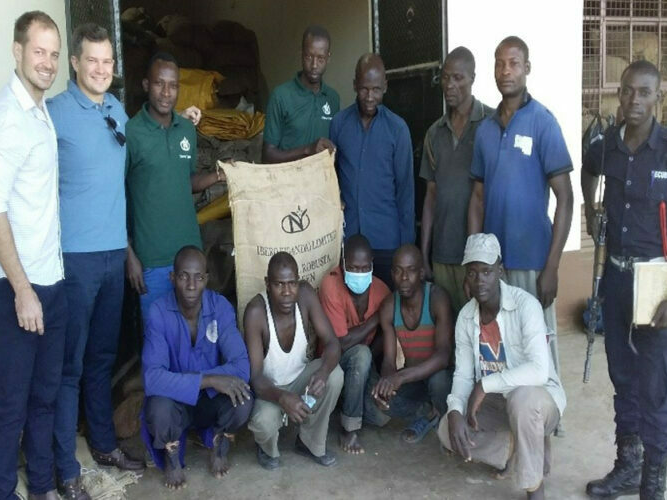By Gabrielle Rosenau, July 2020
In November 2019, Ibero Uganda set up two new regional coffee buying stations—one in Mityana, approximately 70km west of Kampala, near Lake Wamala; and one in Masaka, just over 100km south of Mityana. The motivation for building the stations was to bring services closer to Ibero’s clients. The benefits, though, both to farmers and to Ibero Uganda, have exceeded those hopes.
Having a presence in the field has provided an avenue for more frequent exchanges between Ibero and its customers, building better working relationships. The stations have increased accessibility to market, and farmers feel encouraged to deliver any quantity of coffee they have collected, whereas previously they would have to wait to collect volumes large enough for a truck.
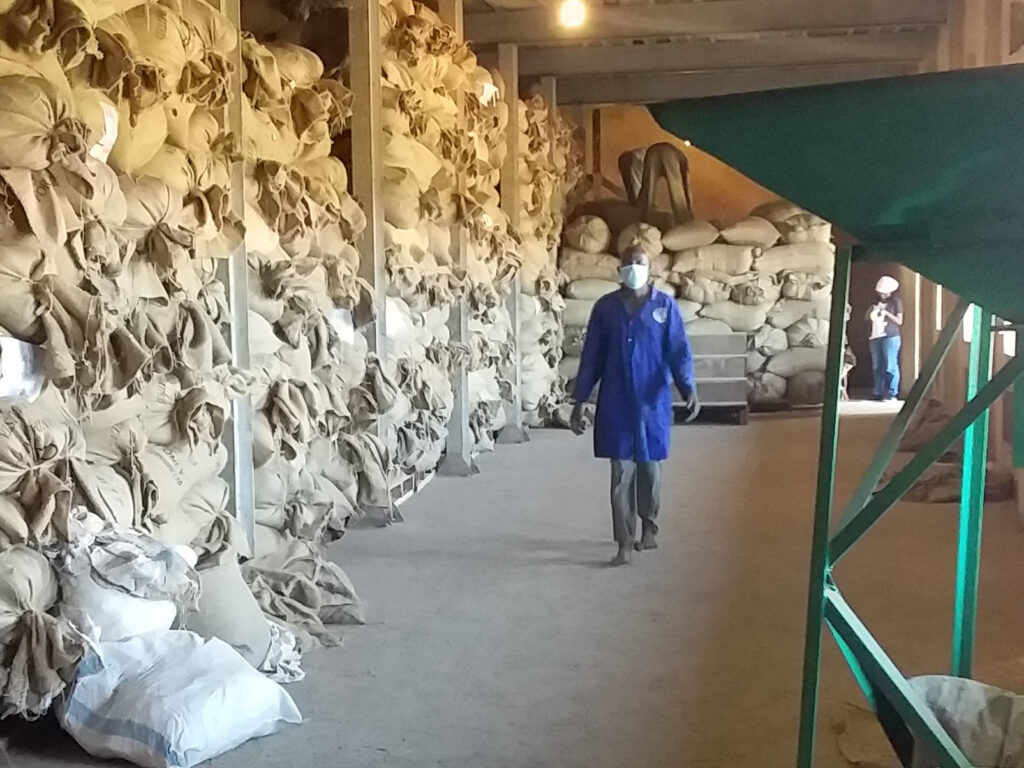
In a short period of time, the buying stations have also managed to solve some direct challenges many farmers faced. To start with, farmers enjoy reduced transport costs, versus bringing coffee to Kampala. The security risks associated with coffee transportation on highways—e.g. theft, accidents, etc.—have also been eliminated where highways can now be avoided.
One of the unintended benefits has been advancements on the subject of gender. We have noticed an increase in the number of women involved in marketing. Because of the convenience of location and faster turn-around times between collection, bulking, processing and ultimately marketing coffee, we see more women participating in both coffee collection and delivery to the buying stations.
There has also been quality improvement in coffees received from the farmers. Farmer group representatives are given immediate feedback on the quality aspects they need to address, and our teams are seeing immediate improvements in quality in subsequent deliveries. Moreover, because we have an opportunity to bargain more closely with our clients, there has been an increase in the volumes of coffee delivered to us that would have otherwise been lost to buyers closer to the farmer.
“Transportation of coffee from one place to another for long distances requires special vehicles and proper handling of the commodity. This, alongside other expenses like food, transport and accommodation of farmer representatives, adds to the overall cost of marketing coffee,” said Mr. Katwere Moses Nkowe, chairman of the Nabumbugu Farmers Cooperative Society. “If purchased locally, and close to farmers, it drastically reduces the overall costs associated with the marketing of coffee and, ultimately, allows farmers to get a better price.”
Ibero is also giving back to the community by hiring young people as off-loaders. All the off-loaders at our coffee-buying stations come from the nearby communities.
Coffee farmers are enjoying fair and transparent grading and are being offered competitive prices in line with world market rates. And all transactions at Ibero buying stations are efficient and impartial. From independent farmers with just one sack of coffee to larger co-operatives with truckloads, all are guaranteed payment within one day of delivery.
Because it is a win-win for both farmers and Ibero, over time we expect to increase the volume and quality of coffee purchased, from both farmers and traders alike.

